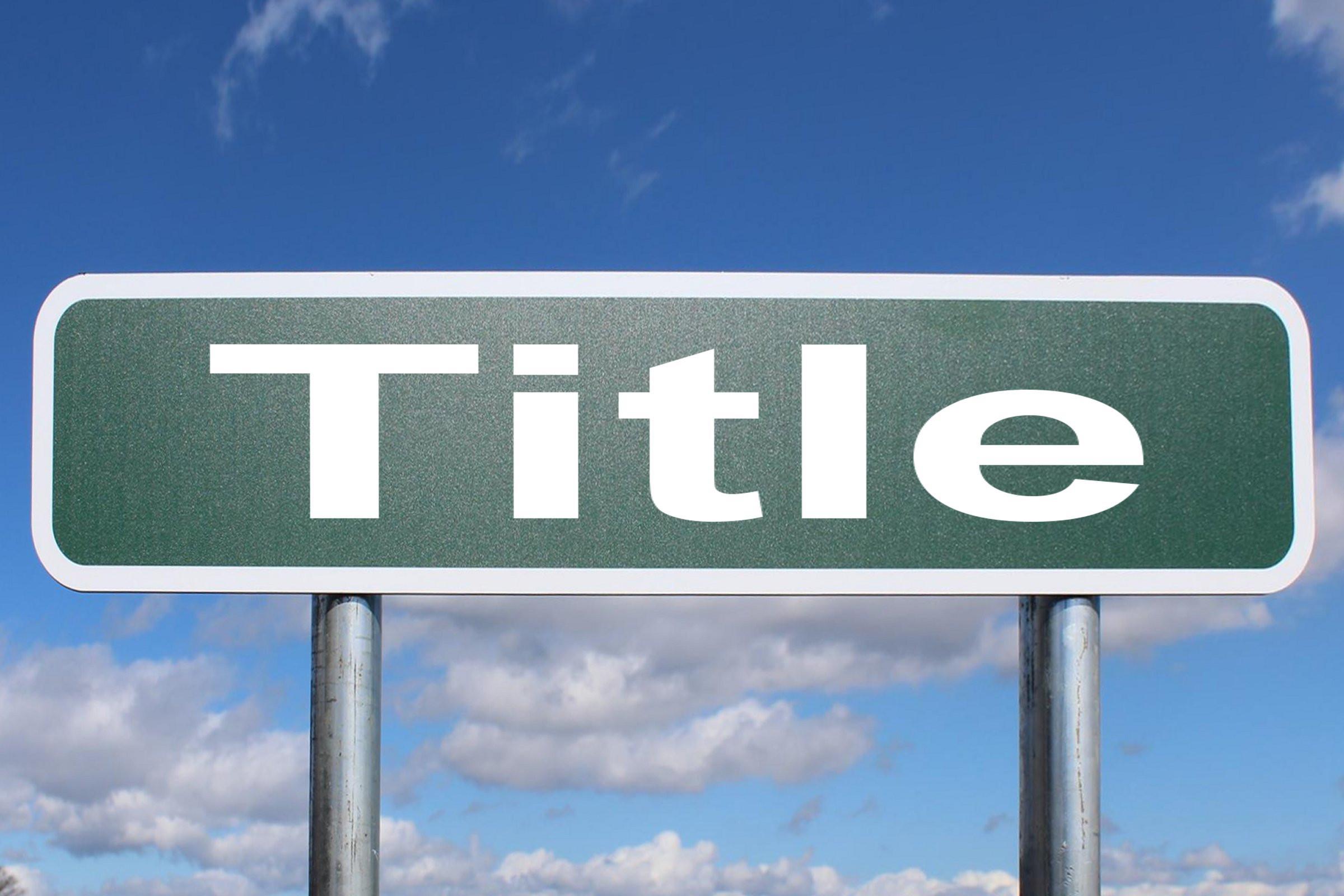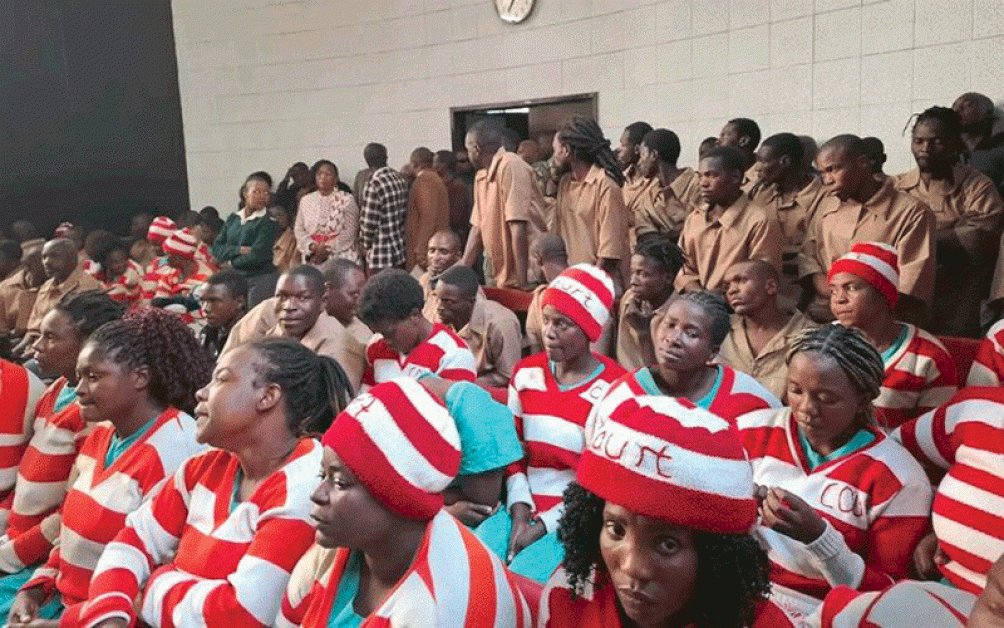Title: CCC77 Application for Discharge: Court Reserves Judgment
The recent CCC77 application for discharge has been the subject of much debate and speculation. The case, which involves a high-profile individual accused of corruption, has garnered significant media attention and public interest.
During the hearing, the defense argued that there was insufficient evidence to support the charges against their client. They also claimed that the prosecution had failed to follow proper procedures in gathering and presenting evidence.
The prosecution, on the other hand, maintained that they had a strong case against the accused. They presented several pieces of evidence linking him to corrupt activities and argued that he should stand trial.
After hearing arguments from both sides, the court reserved judgment on whether or not to grant the application for discharge. This means that a decision will be made at a later date after careful consideration of all relevant factors.
While it is impossible to predict what this decision will be, it is clear that this case has far-reaching implications for both individuals involved and society as a whole. Corruption is a serious issue in many countries around the world, and cases like this one serve as an important reminder of why it must be addressed.
In recent years, there have been numerous efforts to combat corruption through legislation and enforcement measures. However, progress has been slow in some areas due to various factors such as lack of political will or inadequate resources.
It is therefore crucial that we continue to push for greater transparency and accountability in all aspects of public life. This includes not only government officials but also private sector actors who may engage in corrupt practices.
Ultimately, we must work together as a society to create an environment where corruption is not tolerated or accepted. Only then can we hope to build fairer and more just societies where everyone can thrive without fear of exploitation or injustice.
while we await judgment on this particular case, let us use it as an opportunity to reflect on our own roles in promoting integrity and fighting corruption wherever we may encounter it. By doing so, we can help create a better future for ourselves and generations yet unborn.

What are the potential consequences for CCC77 if their discharge of debts is denied by the judge?
Possible article:
Will CCC77 Be Granted Discharge? Find Out as Judgment Is Reserved!
The controversial case of CCC77, a debtor who filed for Chapter 7 bankruptcy in the United States, is still pending a final ruling on whether they will be granted a discharge of their debts. A discharge would release CCC77 from most of their unsecured debts, such as credit card balances, medical bills, and personal loans, and allow them to make a fresh start financially. However, creditors who have opposed CCC77’s discharge argue that the debtor has engaged in fraudulent behavior that should disqualify them from receiving relief. In this article, we will examine the main issues at stake in this case and speculate about the possible outcomes based on legal and practical considerations.
Background of the CCC77 Case
CCC77, whose real name has been withheld to protect their privacy, filed for Chapter 7 bankruptcy in March 2020, claiming that they had a total of $500,000 in debt and almost no assets. CCC77 listed a wide range of creditors, including banks, retailers, landlords, and even individual acquaintances. However, two of the largest creditors, BankS and StoreX, challenged CCC77’s right to discharge their debts, alleging that the debtor had engaged in multiple instances of fraud and deceit.
According to BankS, CCC77 had obtained several large loans from them by providing false information about their income, assets, and employment status. BankS claimed that it had discovered these falsehoods only after CCC77 had defaulted on the loans and its investigators had conducted an extensive background check on the debtor. BankS also accused CCC77 of using a fake identity to open multiple bank accounts and rack up large balances that they never intended to pay back. BankS estimated that CCC77 owed them more than $150,000, which would be discharged if the debtor succeeded in their bankruptcy case.
StoreX, a retail chain, alleged that CCC77 had committed a form of fraud known as “friendly fraud” or “chargeback fraud”, which involves disputing valid charges with a credit card issuer and claiming that the goods or services were not received or defective. StoreX said that CCC77 had made dozens of such chargebacks, resulting in significant losses for the store and violating its terms of service. StoreX argued that these debts should also be nondischargeable due to CCC77’s fraudulent behavior.
Issues at Stake in CCC77’s Bankruptcy Case
The main legal issue in CCC77’s bankruptcy case is whether the debts owed to BankS and StoreX are dischargeable or nondischargeable under Section 523 of the Bankruptcy Code. This section lists several types of debts that are generally not dischargeable, such as tax debts, student loans, fines, and damages for willful or malicious injury. However, Section 523(a)(2)(A) creates an exception for debts obtained by “false pretenses, a false representation, or actual fraud.”
To prove that a debt falls under this exception, a creditor must demonstrate that the debtor made a false statement or omission with the intent to deceive the creditor, that the creditor relied on the false information, and that the debtor’s misrepresentation was the direct cause of the creditor’s loss. This standard is known as the “false pretext and justifiable reliance” test. If BankS and StoreX can show that CCC77 met these criteria, then their debts may survive the bankruptcy and continue to be collectible from the debtor’s future income and assets.
However, CCC77 and their attorney argue that the creditors have not met their burden of proof and that the debtor should be granted a discharge. CCC77 admits that they made some mistakes and errors in their loan applications and banking activities, but denies that they acted with fraudulent intent. CCC77 contends that they have no assets to repay the debts even if they were deemed nondischargeable, and that the creditors are merely trying to harass and intimidate them.
Possible Outcomes of the CCC77 Case
The judge who has been presiding over the CCC77 case has not yet issued a final decision, but has indicated that they will do so soon. The judge has heard testimonies from both sides, reviewed documents and evidence, and considered legal precedents and arguments. The judge may rule in favor of CCC77 and grant them a discharge, finding that the exceptions to discharge do not apply or have not been proven. In this case, CCC77 would be relieved from most of their debts and be able to start over financially, although some debts may still be nondischargeable and have to be repaid in some form.
Alternatively, the judge may side with BankS and StoreX and deny CCC77’s discharge, finding that the debtor engaged in fraudulent behavior that bars them from relief. In this case, CCC77 would still have to pay back the debts owed to BankS and StoreX, as well as any other debts that are nondischargeable under Section 523 or other provisions of the Bankruptcy Code. CCC77 could appeal the decision to a higher court, but the chances of success would depend on the strength of their legal arguments and evidence against the creditors’ claims.
Conclusion
The CCC77 bankruptcy case highlights the complex legal and practical issues involved in determining whether a debtor is entitled to a discharge of their debts in Chapter 7 bankruptcy. Depending on the facts of each case, creditors may assert claims that certain debts should be excluded from discharge due to fraudulent conduct, which the debtor has to defend against or refute. The final judgment in the CCC77 case may have significant implications for other bankruptcy cases and consumers who are struggling with debt and seeking a fresh start.All rights reserved. This material, and other digital content on this website, may not be reproduced, published, broadcast, rewritten or redistributed in whole or in part without prior express written permission from MONTAGE AFRICA.
Contact: editor@montageafrica.com






